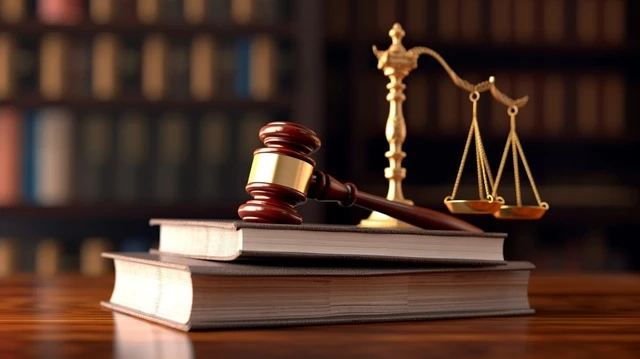Traffic Violations in New Jersey
New Jersey's traffic laws categorize violations into two main types: moving and non-moving violations. Understanding these distinctions is crucial for drivers, as they significantly impact potential consequences and the need for legal representation. This comprehensive overview will explore the nature of each type of violation, their implications, and how they influence the decision to hire a lawyer.
Definition and Nature of Moving Violations
Characteristics of Moving Violations: Moving violations occur when a vehicle is in motion and typically involve breaking traffic laws. These infractions are generally considered more serious due to their potential to cause accidents and endanger public safety.
Impact on Driving Record and Insurance: Moving violations typically appear on your driving record and can remain there for Traffic Ticket Lawyer New Jersey several years. This can lead to significantly higher insurance premiums and may be visible to potential employers during background checks.
Definition and Nature of Non-Moving Violations
Characteristics of Non-Moving Violations: Non-moving violations generally occur when a vehicle is stationary or involve administrative issues related to vehicle ownership and operation. These are typically considered less serious than moving violations.
Common Examples of Non-Moving Violations:
Parking violationsExpired vehicle registrationDriving with an expired licenseEquipment violations (e.g., broken tail light)Failure to wear a seatbeltImproper display of license platesExcessive window tintingPotential Consequences of Non-Moving Violations:
FinesPossible vehicle impoundment in some casesGenerally do not result in points on the licenseUsually do not directly affect insurance ratesImpact on Driving Record and Insurance: Non-moving violations often do not appear on your driving record and are less likely to impact employment opportunities related to driving. They typically do not lead to increased insurance premiums.
The New Jersey Point System
Overview of the Point System: New Jersey uses a point system to track moving violations. Points accumulate on a driver's record, and reaching certain thresholds can lead to license suspension.
Moving Violations and Points:
Most moving violations result in points being added to the license
The number of points varies based on the severity of the offense
Accumulating too many points can lead to license suspension
Non-Moving Violations and Points:
Typically do not result in points being added to the license
Some exceptions may exist for certain violations
Legal Representation for Moving Violations
Reasons to Consider Hiring a Lawyer:
Potential to reduce or dismiss charges
Possibility of plea bargaining for lesser offenses
Expertise in navigating complex traffic laws
Ability to represent you in court, potentially without your presence
Benefits of Legal Representation:
May help prevent license suspension
Can potentially reduce fines and penalties
Might prevent insurance rate increases
Valuable for protecting commercial driver's licenses (CDLs)
Legal Representation for Non-Moving Violations
General Need for a Lawyer:
Typically less necessary than for moving violations
Most can be handled without legal representation
For Moving Violations:
Consider potential long-term costs (insurance increases, job impacts)
Weigh lawyer fees against possible reductions in fines and penalties
Factor in the value of time saved by having a lawyer handle the case
For Non-Moving Violations:
Usually, the cost of a lawyer outweighs the benefits
Exceptions may include complex cases or those with significant fines
Long-Term Implications of Violations
Career Impact:
Moving violations can affect jobs requiring clean driving records
Non-moving violations generally have minimal career impact
Future Insurance Rates:
Moving violations can increase rates for several years
Non-moving violations typically don't affect insurance directly
License Status:
Accumulation of moving violations can lead to suspension
Non-moving violations rarely impact license status directly
Handling Violations Without a Lawyer
Self-Representation for Moving Violations:
Possible but risky, especially for serious offenses
Requires thorough understanding of traffic laws and court procedures
May be feasible for minor, first-time offenses
Self-Representation for Non-Moving Violations:
Often straightforward and manageable without legal help
May involve simple procedures like paying fines or contesting tickets by mail
When to Consider Self-Representation:
For very minor moving violations with clear evidence in your favor.Most non-moving violations, unless unusually complex.Moving Careless Driving in New Jersey violations can have more severe consequences for CDL holders.May affect employment opportunities and job security.Legal representation often more crucial for protecting CDLs
Non-Moving Violations and CDLs:
Generally less impactful, but repeated violations may raise concerns
The Role of Traffic Courts in New Jersey
Court Procedures for Moving Violations:
Often require court appearances.May involve negotiations with prosecutors.Opportunity to present evidence and arguments
Handling Non-Moving Violations in Court:
Many can be resolved without a court appearance.Some may require attending a hearing or providing documentation
Importance of Court Etiquette and Preparation:
Proper behavior and preparation can significantly impact outcomes.Lawyers familiar with local courts can provide valuable guidance
Making an Informed Decision
The decision to hire a lawyer for a traffic violation in New Jersey largely depends on the nature of the offense. Moving violations, especially those with severe potential consequences, often warrant legal representation. The expertise of a traffic ticket lawyer can be invaluable in navigating the complexities of traffic law, potentially reducing charges, and mitigating long-term impacts on your driving record and insurance rates.
Non-moving violations, while still serious, generally pose less risk to your driving record and future. In most cases, these can be handled without legal representation. However, it's important to assess each situation individually, considering factors such as the severity of the violation, potential fines, and your personal circumstances.
Ultimately, whether dealing with a moving or non-moving violation, understanding your rights and the potential consequences is crucial. When in doubt, consulting with a traffic ticket lawyer can provide clarity and help you make the best decision for your specific situation. Remember, the goal is not just to address the immediate violation but also to protect your long-term interests as a driver in New Jersey.



